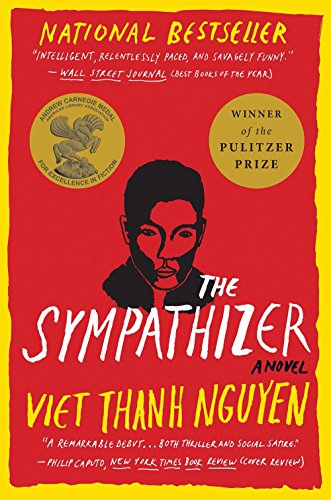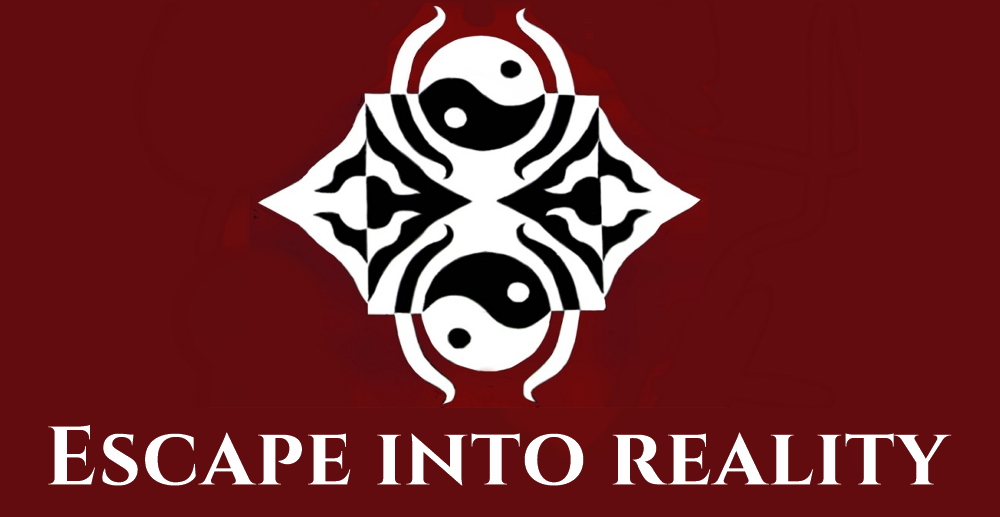 Forty years after the end of the war in Vietnam comes a widely-acclaimed, generously awarded début novel—The Sympathizer: A Novel by Viet Thanh Nguyen, published by Grove/Atlantic, Inc. in 2015. I’m going to throw in my two-cents worth among the throng of gushing admirers of this 2016 Pulitzer Prize winning novel (plus at least five other awards), because this work says something essential to me. Something essential I continue to grapple with.
Forty years after the end of the war in Vietnam comes a widely-acclaimed, generously awarded début novel—The Sympathizer: A Novel by Viet Thanh Nguyen, published by Grove/Atlantic, Inc. in 2015. I’m going to throw in my two-cents worth among the throng of gushing admirers of this 2016 Pulitzer Prize winning novel (plus at least five other awards), because this work says something essential to me. Something essential I continue to grapple with.
The Sympathizer promises the reader a fresh look at the Vietnam war from the viewpoint of a spy for the communists. But the spy is not just anyone. He is a South Vietnamese working for a general of the American-controlled Vietnamese army.
And he is not just Vietnamese. He is a “hybrid” or a “mongrel,” as the spy/narrator sometimes labels himself. The son of a French priest who raped a young Vietnamese woman, he is, thus, also literally a bastard. To me, this situation resonated because in the country of hybrid traditions I came from—dominated by Spaniards from 1521 to 1898—Spanish priests also took advantage of, and impregnated young local women. Maybe, conquerors feel it’s a privilege they’ve earned.
In view of this fact, Prof. Nguyen is not right when he says:
“It was not they (the French) who invented the Eurasian, however. That claim belongs to the English in India, who also found it impossible not to nibble on dark chocolate.
No, that claim belongs not to the British but to the Spaniards who, having invaded the Philippines in 1521, had an eighty-year headstart. The British entered India on a business venture as the East India Company in the early 1600s.
Much is said about the first sentence of this book: “I am a spy, a sleeper, a spook, a man of two faces.” And indeed it is a startling confession, particularly when it becomes clear several paragraphs down that the narrator is making this confession to an interrogator (the commissar). And that he is likely to be executed based on what he says.
To cut his long confession short, the spy does escape death, because the commissar himself has bought his freedom for him. Just why I won’t reveal in this review because it is a crucial part of what constitutes not only the suspense in, but also one major theme of, the novel.

To me who has always believed in the senselessness of war, that theme is this: Those who fight wars presumably for freedom really end up fighting for nothing. The narrator realizes this in the end:
When it came to learning the worst habits of our French masters and their American replacements, we quickly proved ourselves the best. We, too, could abuse grand ideals! Having liberated ourselves in the name of independence and freedom— I was so tired of saying these words!— we then deprived our defeated brethren of the same.
Another major theme—a bigger one in my opinion—has to do with identity. The identity of inhabitants in countries who have endured the colonizing mania of bigger, often more prosperous countries. In modern times, Vietnam has seen French and Americans come and go. The Philippines put up with Americans and then the Japanese after the Spaniards left.
I don’t think the plot of this book is as important as its raison d’être. And that raison d’être is about grappling with what happens when conquerors leave and how the conquered see themselves.
The author uses a lot of symbolism. In choosing to make the spy the offspring of an unholy alliance between conqueror and native, the author is focusing on the duality of the conquered. At the end of the novel, in fact, the spy begins to call himself “We” instead of “I” to reflect that duality (or, in other cases, multiplicity).
But duality or being of two faces or two minds is not the only fate of the conquered. Much worse is that suffered by the commissar who’s lost his face in battle. His facelessness is a metaphor for the loss of his identity, of himself.
Prof. Nguyen’s often clever prose is generally a pleasure to read although it lacks the lyricism of Anthony Doerr’s All the Light We Cannot See” (2015 Pulitzer Prize), a novel that, to me, approaches perfection among my reads of the last ten years. Sometimes, the professor’s narrative and style verge on the “cute:” “His name is Harry. He’s hairy.” Another instance that jumped out at me is when the spy dissects the word “mole.” Cute, maybe even clever and funny, but they sounded a bit out of tune in a novel that takes itself seriously (with very good reason). I found myself rolling my eyes heavenward.
Finally, although the novel speaks to me in some ways that matter, it didn’t tug at my heart like Doerr’s novel did. There’s a universality in Doerr’s characterizations that compels rereads. I’m unlikely to go back to The Sympathizer.
Having said that, I don’t think those “issues” detract from the raison d’être for this novel. And they fail to dampen my curiosity about a sequel Prof. Nguyen is threatening to write.

